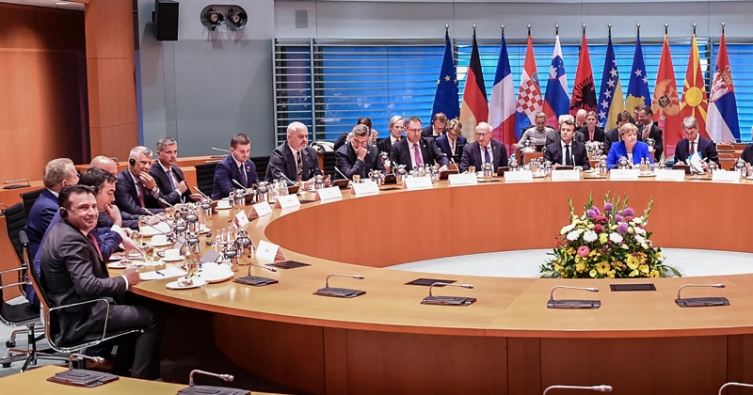The French Embassy in Macedonia published a strategy paper for the Balkans, which discusses, as President Emmanuel Macron said, stabilization but not integration of the Balkans in the European Union.
The strategy solidifies French opposition to the quick opening of accession talks with Macedonia and Albania, which was the main driving force behind the rejection of Macedonian request to be given a date to begin the talks this June. The French paper lists the numerous obstacles that continue to undermine the stability of the “Western Balkans” and “North Macedonia” in it.
The unresolved political issues (although the Prespa treaty represents an important move forward and is an example of regional dialogue). Economic and welfare issues. Difficulties in establishing permanent rule of law. Security issues. Foreign issues which move the region away from its European perspective, the strategy outlines.
The rejection of the request to open EU accession talks is an especially strong blow to Zoran Zaev, who imposed a name change on Macedonia promising that it will open the doors for EU integration.
Under the strategy, Macron will visit Serbia, and the French Minister of European and Foreign Affairs will visit Albania and Kosovo. Macedonia is not on the list, and the strategy makes no mention of integration in the EU. To cushion the blow it inflicts on regional hopes to join the EU, France promises to sign inter-state treaties in the areas of energy, environmental transition, gender equality, youth matters, climate change and other issues.
Under the strategy, France will also work with Germany to combat human trafficking, stockpiling of small arms, will combat Islamic radicalization and fight drug trafficking. The French AFD agency will provide assistance of some 100 to 150 million EUR to the region, paired with the funds provided by the German KfW.





Comments are closed for this post.